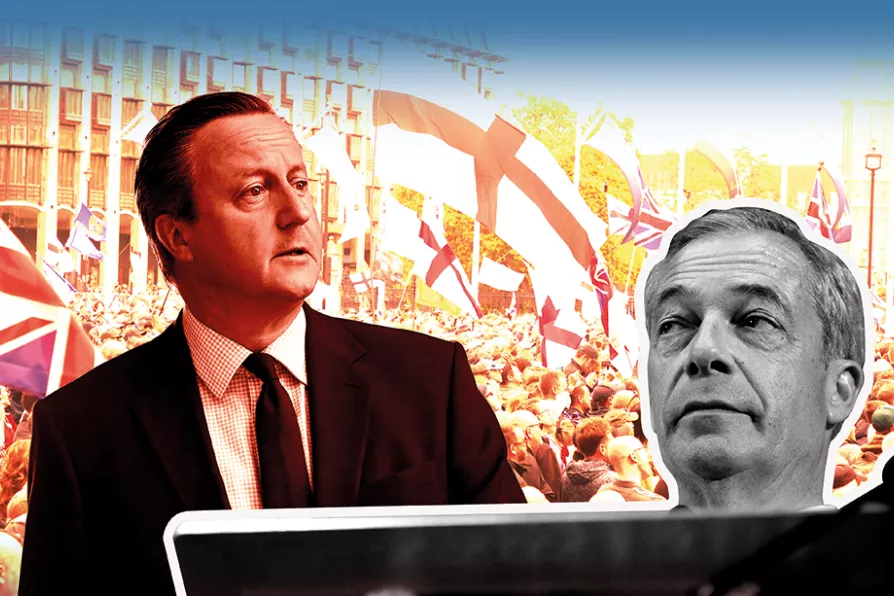Eighty-one years after the liberation of Auschwitz, the threat of far-right extremism is resurging – the lessons of history demand unity, organisation and resistance, argues SABBY DHALU


In Britain we may have election fever but Europe is going to the polls too — with the far right predicted to do well across the continent in elections to the European Parliament from June 6-9.
With our sister papers Junge Welt of Germany and Arbejderen of Denmark, we compiled a series of articles looking at the nature of the far-right threat across different European countries, of which this is the seventh and final instalment. We would like to thank Junge Welt for organising the series and translation.
BRITAIN’S Home Secretary James Cleverly went to Italy the day the government’s notorious plan to deport asylum-seekers to Rwanda passed in the House of Commons.
Cleverly compared Britain’s “stop the boats” policy to that of the Italian government, which has been instrumental in getting the European Union to abandon search-and-rescue operations in the Mediterranean with the abolition of Operation Sophia in 2019, and has led the way in seeking to criminalise civil search-and-rescue missions, charging the crews of rescue vessels like the Iuventa (who were acquitted last month) with human-trafficking offences when they save lives at sea.

From Reform UK to Trump, Orban and beyond, the far right is organised across borders and growing. Waiting for it to collapse is a fatal error – building an international, locally rooted left alternative is now an urgent necessity., argues ROGER McKENZIE

The left must avoid shouting ‘racist’ and explain that the socialist alternative would benefit all












